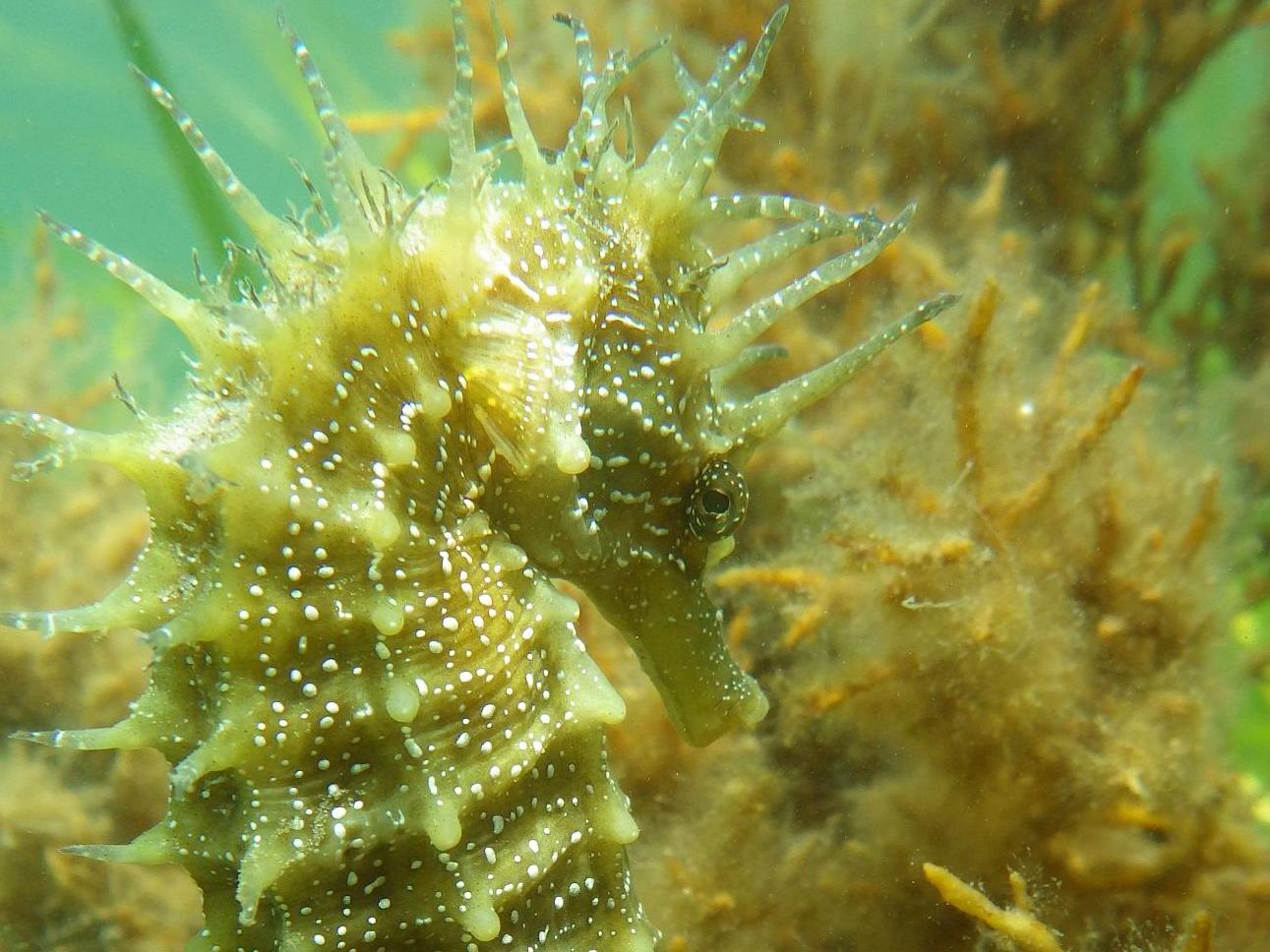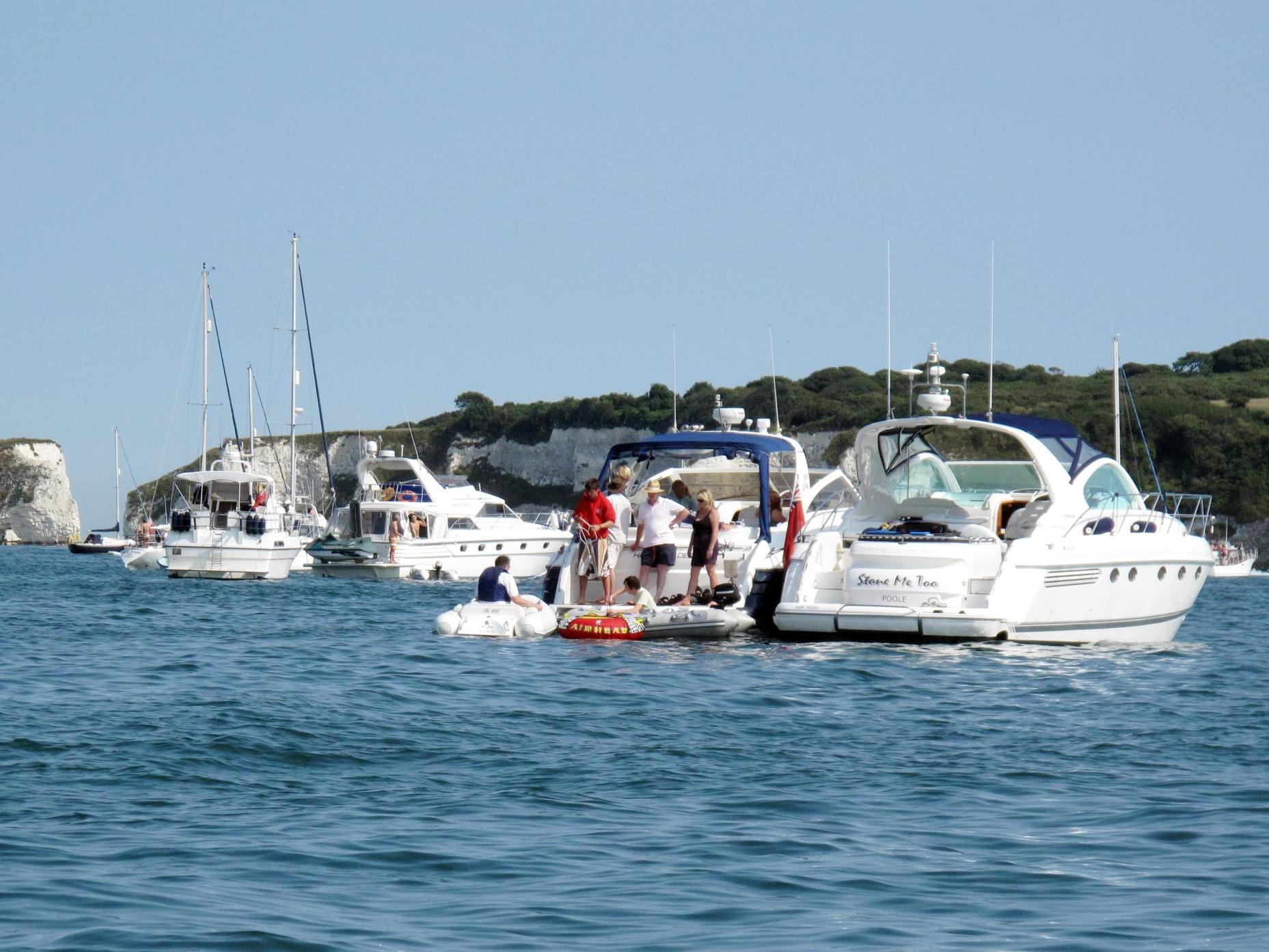Endangered seahorse returns home amid lockdown to enjoy ‘lack of boats and people’
Conservation charity records highest number of native seahorses found in single dive in Studland Bay since 2008

An endangered seahorse native to the UK has taken advantage of the lockdown to recolonise its former stronghold in Dorset, marine conservationists have said.
The Seahorse Trust, a world-leading charity for seahorse conservation, found 16 spiny seahorses – including pregnant males and a juvenile that had been born this year – during a regular survey dive at Studland Bay.
The discovery marks the largest number of seahorses found in a single dive on the site since the trust began monitoring the area in 2008. Before now, a seahorse had not been seen at the site for two years.
Neil Garrick-Maidment, founder of the Seahorse Trust, attributed the return of the shy, elusive marine animals to a “lack of boats and people” as traffic came to a halt during the coronavirus lockdown.
He said: “We have seen so many seahorses because the food chain has recovered, giving seahorses plenty of food to eat, and crucially, somewhere to hide.”
Ms Garrick-Maidment also noted a “remarkable recovery” in the ecology of the Studland Bay site, and the seagrass there “has started to repair itself”.
The seagrass where seahorses usually hide was being destroyed by moorings which dragged on the sea bed, prompting calls in 2016 by the Seahorse Trust and the Dorset Wildlife Trust for “environmentally-friendly moorings” to be used.
In 2008, about 40 spiny seahorses were recorded, but only two live ones had been seen since 2015. In 2018, only a dead seahorse was found.
The UK has two native seahorse species, the spiny and the short-snouted seahorse. Both were granted protected status in 2008 under the Wildlife and Countryside Act.
Studland Bay was designated a Marine Conservation Zone in 2019 following years of campaigning, in recognition of the importance of its seagrass habitat and seahorse population

“The question is how we go forward,” said Mr Garrick-Maidment after the trust’s recent discovery. “We do not want boats and divers banned, but the seahorses and seagrass do need their legal protection enforced.
“The 16 seahorses discovered on a single dive are an amazing discovery, but we now need the Marine Management Organisation (MMO) and Natural England to enforce the Wildlife and Countryside Act and the Marine Conservation Zone and put in place measures such as environmentally friendly moorings.
“The seahorses need protection to stop them being disturbed again as Covid restrictions are lifted and to stop them vanishing from this legally protected site.
“We have a unique opportunity to help nature and to restore the balance of our planet,” he added.
“We must grab this with both hands, for the seagrass, for the sea, for humanity and crucially for these incredible seahorses.”
Natural England, which is responsible for managing the site at Studland Bay and acts as a statutory adviser to the Marine Management Organisation (MMO), said conservation advice for the protected marine habitats and species at the site is being constantly reviewed and will be updated if greater protection is required.
Matt Heard, Natural England area manager for Wessex, said: “We are firmly committed to protecting our precious habitats and wildlife and we are already consulting on updated conservation advice for the Studland Bay Marine Conservation Zone.
“We continue to work with the MMO and local groups to ensure the Marine Conservation Zone and its special wildlife are well managed, conserved and protected so that they can be enjoyed sustainably for generations to come.”
A spokesperson for the MMO said both species of British seahorses were “fully protected” under the Wildlife and Countryside Act 1981 and any activities that could disturb them required a “wildlife licence”.
“Intentionally disturbing seahorses without a license could lead to enforcement action,” she said.
Additional reporting by PA
Join our commenting forum
Join thought-provoking conversations, follow other Independent readers and see their replies
Comments